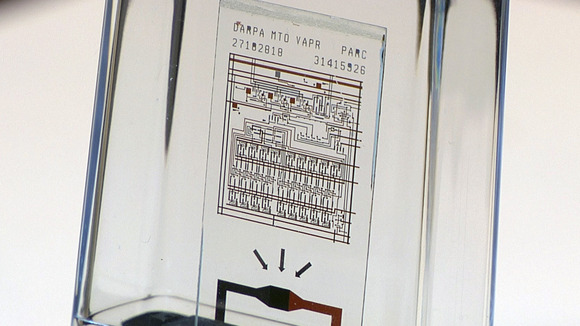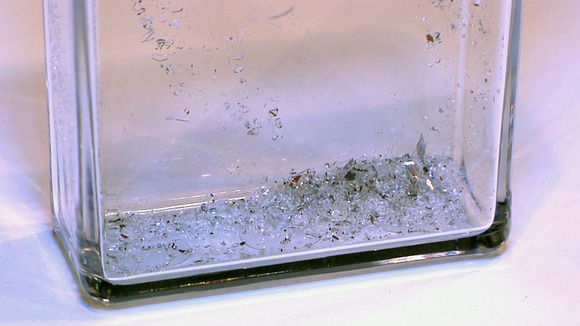Engineers from Xerox PARC have created a computer chip that can destroy itself on command.

The chip, capable of storing data such as encryption keys, will shatter itself into thousands of pieces of small glass. It was created as part of DARPA’s vanishing programmable resources project, and presented at the Agency’s recent Wait, What? event in St. Louis.
“The applications we are interested in are data security and things like that,” said Gregory Whiting, a senior scientist at PARC in Palo Alto, California. “We really wanted to come up with a system that was very rapid and compatible with commercial electronics.”
The way it works is fairly ingenious. The chip is based on Gorilla Glass, the renowned Corning-produced material used for displays on a variety of mobile devices. While the glass is known for its toughness, the engineers modified it so as to make it super-stressed. Included with the chip and glass is a small resistor which, when prompted, will heat up. The increase in temperature will disturb the already stressed out glass and prompt it to shatter.
What’s more, even after the glass breaks up, stress remains in the fragments, and they continue breaking into smaller and smaller pieces for tens of seconds afterwards, making reconstruction of the chip impossible.

The PARC team’s approach is an exciting advancement for applications such as computer security. It can be used to store sensitive information which, when no longer needed, or should the chip fall in to the wrong hands, can be completely destroyed in an instant, and with full assurance that there will be no security breach.
The demo below shows the chip being prompted to destroy itself using a photo-diode to switch the circuit on. While the light provided comes from a laser, for actual, real-world applications, self-destruction can be triggered by anything from a mechanical switch to a radio signal.
Story via PCworld
Advertisement
Learn more about DARPA





